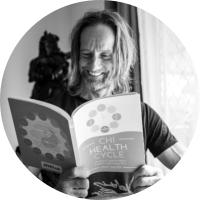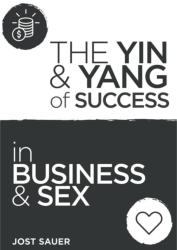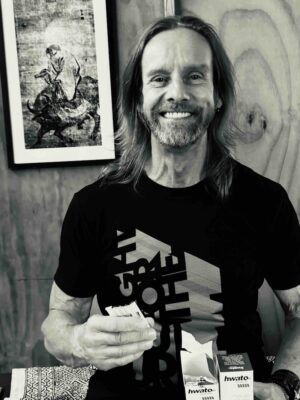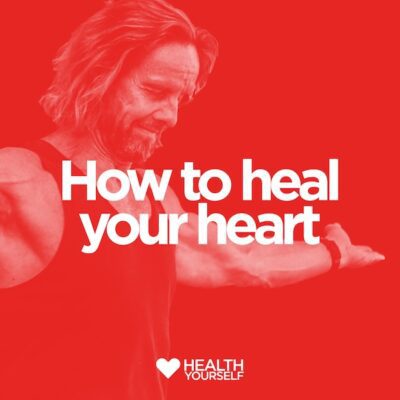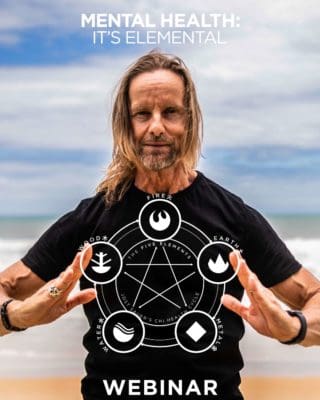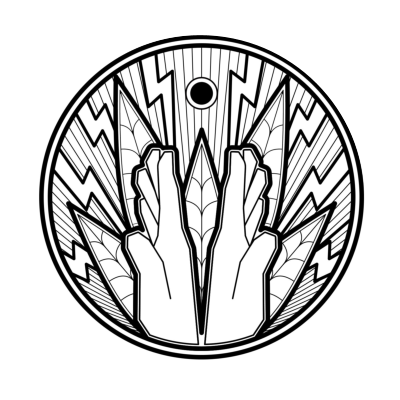Why weekly date nights and romance advice fail – and how to address the invisible patterns that actually determine relationship success or failure. The Surface Solution Trap “Can you reignite intimacy and passion with weekly dates?” This question came up in my clinic recently, and while scheduled romance…
AddictionArticles Articles
Articles / Drugs: the body-mind perspective
Posted February 28, 2009
Drugs: the body-mind perspective
by Jost Sauer
From the body-mind perspective drugs feel good because they create a temporary union of body, mind and spirit. If the process of recovery does not capture this sense of union it can result in a feeling of chronic lack – as if something crucially important is missing in life. This is a major contributor to the cycle of addiction. In TCM quality of life and a sense of fulfilment is dependent on the effective functioning of the organs. As drugs temporarily and artificially enhance the function of organs, they produce emotional, physiological and spiritual states in accord with the true nature of the organ.
So drug highs also offer first-hand experiences of our organs in peak-performance. We all know how good it feels when we are operating under peak-performance, life is worth living and we feel complete within ourselves. Humans are programmed to realize our highest potential so you could say that it is peak-performance which is the real addiction. Athletes are addicted to this as are many business people or high-achievers. In the drug context, someone who might be shy, introverted and socially fearful can, on drugs, suddenly become confident, strong and outgoing. These experiences become a reference point stored as memory in the Human Energy Field (HEF), just as winning a race does for an athlete. This can impact upon the drug-user for life because they link these great states to the drug and then chase it relentlessly through substances. I feel as if I spent twenty years of my life chasing the initial exhilaration and excitement of my early drug experiences. However, like other heavy drug users I ended up emotionally empty, stagnant and depressed for a very long time after quitting. This is partially due to organ depletion caused by drugs, but also because in body-mind medicine the reference points from those awesome drug experiences are stored in the body-mind and now operate as active memories to remind ex-users what they are missing. In order to counter this, organs need to be built and trained to reach peak-performance state again to match those memories.
From the body-mind perspective this is a crucial factor in healing substance addiction and in helping people avoid turning back to drugs. Once people give up drugs, most think that their life will return to ‘normal, that drugs were ‘the problem’. But things will probably not return to normal, at least not in terms of the way their life was before drugs. The person is different physically, spiritually and emotionally and this will change their worldview significantly. Heavy or long term recreational drug use dehypnotises people from society in the same sense that therapy can but with recreational drugs the process is not guided by a professional and unable to be processed. In addition the person is physically depleted and drained and, as society is not educated to understand what ex drug-users are going through, partners, parents and friends also react inappropriately. One simple example is that recovering addicts, feel overwhelmed by having too many options and find themselves unable to do anything or make choices. Life after drugs is often the beginning of a very hard period of physical, spiritual and emotional readjustment. Many ex drug-users feel alienated and alone and, in addition to their heavy emotional pain, it makes recovery so challenging that many people simply can’t handle it and relapse back into drug use.
I believe that the inability to experience that blissful feeling of union again after drugs is why many people return to drugs. The body-mind connection is the missing link. The body needs to be repaired in line with the mind to avoid a separation of the two. From the body-mind-spirit perspective, drug-highs work via the body, they originate in your organs. Drug-highs are awesome ‘gut’ feelings, you really feel drugs like cocaine and speed in your organs. So drugs provide a conscious experience of body-mind awareness as on drugs you feel your mind and body as one. It’s a union that easily surpasses sexual experiences. Orgasms are elusive, you can’t grasp them, but on some drugs (really good ones) it can feel like a six-hour orgasm that you can grasp. Drugs take you into an emotional realm so intense that most non-drug users simply can’t imagine it. The highs seem unlimited. Way beyond anything experienced in normal life. In the seventies in Amsterdam and in Berlin, when LSD was pure and speed and cocaine were uncut, I had extraordinary drug experiences. Like everyone else I assumed this was a result of the action of the drug. But my decades of research since then, into TCM, spirituality and body mind medicine, has made me realise that there are no limits to what we can experience internally without drugs and that a deep natural union derived from internal practices feels much more real, more intense and more addictive than any created by drugs.
Body-mind awareness and union is derived from practices such as Tai-chi, Chi-gung, Aikido or Yoga and correct diet, prescribed herbs and powerful supplements. This facilitates union. The practitioner surrenders to the natural function of his/her organs allowing them to becomes one with the creative forces of the universe rather than letting their mind create reality. Ideally this is how we would all live but unfortunately, seeking inner union in the West is a difficult process. We have developed a separation between body and mind which we inherit during our formative years and which then leads to resisting the actual process later in life when we decide to go ‘within’. Drugs override this split and our inherited resistance and provide union instantly. We experience true purpose in life and drugs take over the role of spirituality and spiritual practice. But when the destruction from drugs reaches the point where we need to stop, we are faced by devastating withdrawal symptoms and a gloomy future, of being an addict for life medicated with methadone or antidepressants. I had nearly fifteen years of other people trying to convince me that this was my future and that my addiction was an untreatable disease. That didn’t feel right to me but I couldn’t articulate why. Now I see that simply stopping the drug is not the full answer because this doesn’t create union and life after drug requires union of body, mind and spirit, otherwise drugs continue to control your inner and outer life.
In the body-mind of drugs, as a drug user you don’t only collect positive reference points from drug highs, but also negative reference points which are also stored in your body- mind and these need to be addressed as well. A very common negative reference point is developed from the interaction between drug users and family members. In all my years as a therapist I have never met a parent who said to me they were delighted that their son or daughter was doing drugs. The contrary is the norm; parents and family members of drug users often hate drugs with a passion. The irrational and abnormal behaviour patterns resulting from heavy drug abuse in their children establishes a battleground for aggression, pain and verbal or physical violence. Young drug users in particular are repeatedly exposed to statements confirming that they are hopeless, useless, a loser, and these too become reference points stored in the body-mind. The ex-user is caught in a situation where they will be plagued with an inner negative voice whenever they deal with progress in life. This could be when exercising in order to build the body or when doing something like signing up for a college course to further education. The voice in the head criticizes any attempt to improve and to do something about your life. In my experience this can make people give up, feel defeated or go back to drugs because that makes the voice shut up for a while.
Drug users often put the drug-free life on a pedestal, it becomes their holy grail. Drugs have brought so much misery and pain that a drug-free life is envisaged as blissful and perfect. However, after some time without drugs, the user is faced with the fact that life after drugs is more difficult and painful than they ever imagined. They have memories of unbelievable highs, they are plagued by the negative references which jeopardise their attempts to rebuild and in addition they have to face a social environment that has absolutely no comprehension of how they feel or where they have been. This is why when giving up drugs it is essential to find a technique to grasp union on a daily basis and to continue the journey the drugs have initiated. The union of body and mind requires daily actions that have to become routine. In my period of speed addiction I woke up every morning to take drugs. I didn’t wake up and think of work or feeding the cat or paying bills. A drug addict wakes up for union of body, mind and spirit because everything else in life is meaningless. Life after drugs has to look exactly like this. Every day you wake up for union, you don’t do it just on the weekends or have an acupuncture session once a week. Life after drugs means chasing union all day long as your sole purpose – just like the addict.
Share this article:
About Jost Sauer
Jost Sauer is an expert in preventative health and Chinese medicine.
Jost pioneered lifestyle medicine for addiction, kickstarted a recovery revolution with his groundbreaking rehab program, and then adapted the program for everyone as the Chi Cycle lifestyle; a health-boosting, fat-burning feel-good day plan.
Jost has treated thousands of people including celebrities, CEOs and athletes, using his unique combination of Chinese medicine, acupuncture, chi-activation, motivational coaching and lifestyle. He offers individual sessions, training programs and retreats. Jost’s passion is to show everyone how to optimise their organ function, synch back in and reconnect to natural rhythms, and make every day medicinal and magical…
Related Articles
Forget everything you’ve been told about healing from relationship breakups. This groundbreaking method transforms heartbreak into an opportunity for authentic self-discovery and spiritual awakening. Why Traditional Heartbreak Advice Fails Most relationship recovery advice follows the same tired formula: take time to grieve, don’t rebound too quickly, work on yourself,…
Feeling overwhelmed by anger everywhere you look? You’re not alone. Here’s how to use anger as fuel for positive change instead of letting it destroy your health and relationships. The Anger Epidemic: What’s Happening to Us? There’s no denying it – anger is everywhere right now. I see it…

